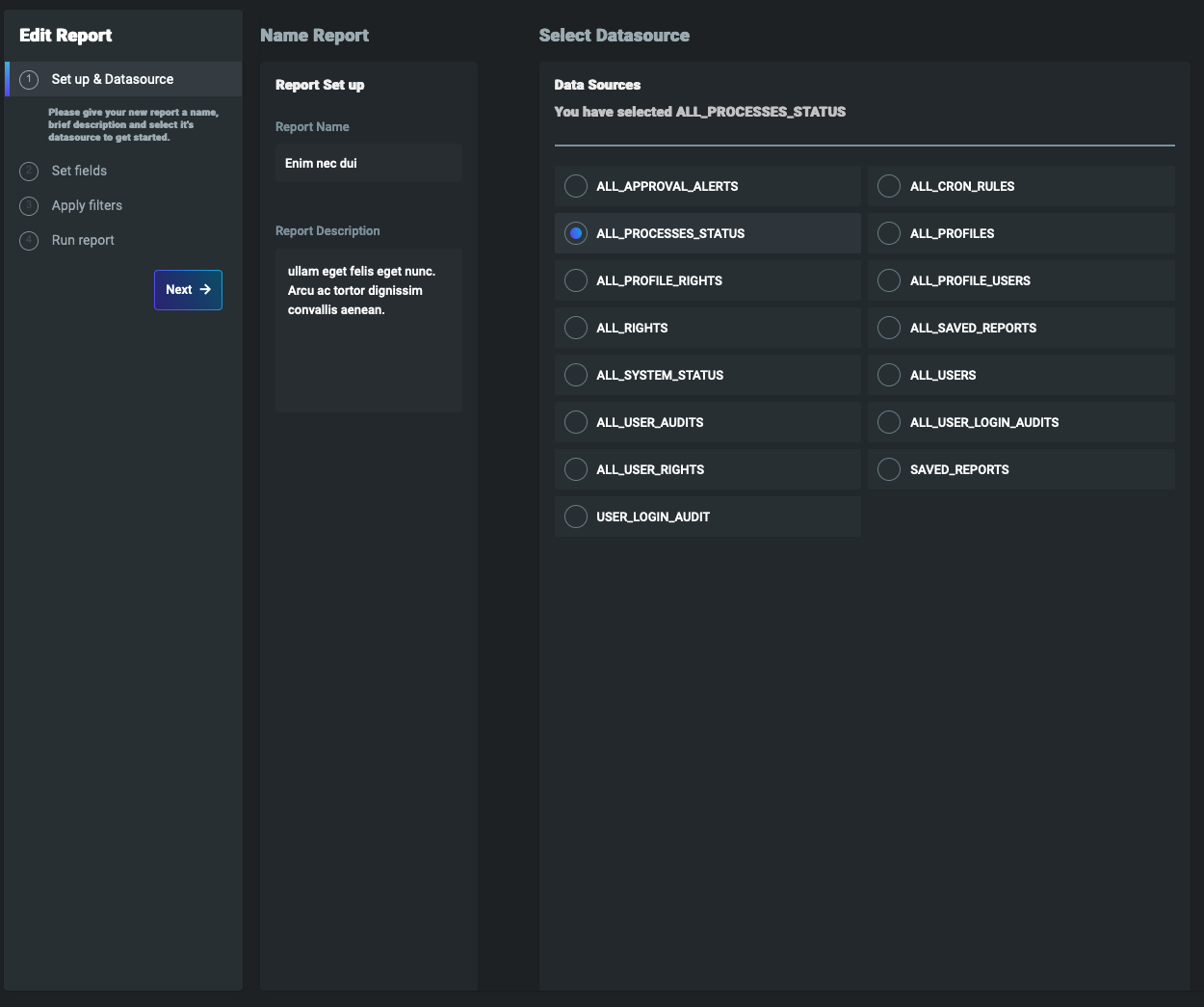Reporting Micro front-end
The Reporting micro front-end enables your users to create report specifications, run them, or save them for later use.
From the GUI, users can:
- select columns from existing data sources
- save the report with a name and retrieve it for future use
- apply ad hoc filtering to a report
- export the report results to .csv format
The micro front-end has a GUI that walks the user through generating a report.

Once the report is created it can be viewed in the GUI, and also exported to a .csv file.

All the generated reports are stored for retrieval later. The report configuration is saved and the report updated when the user runs the report again.

Set-up
Front-end configuration
To enable this micro front-end in your application, follow the steps below.
- Add
@genesislcap/foundation-reportingas a dependency in your package.json file. Whenever you change the dependencies of your project, run the$ npm run bootstrapcommand again. There is more information on this in the package.json basics page.
{
...
"dependencies": {
"@genesislcap/foundation-reporting": "latest"
},
...
}
- Import the module and configure the route in your routes config.ts file.
Synchronous example
// Import
import {Reporting} from '@genesislcap/foundation-reporting';
// Routes configure
public configure() {
...
this.routes.map(
...
{path: 'reporting', element: Reporting, title: 'Reporting', name: 'reporting'},
...
);
}
Asynchronous example
// Import
import {Reporting} from '@genesislcap/foundation-reporting';
// Routes async configure
public async configure() {
...
this.routes.map(
...
{path: 'reporting', element: (await import('@genesislcap/foundation-reporting')).Reporting, title: 'Reporting', name: 'reporting'},
...
);
}
info
If there are no reports in the database, you will see an error on the web page saying there are no reports to load - this is expected behaviour.